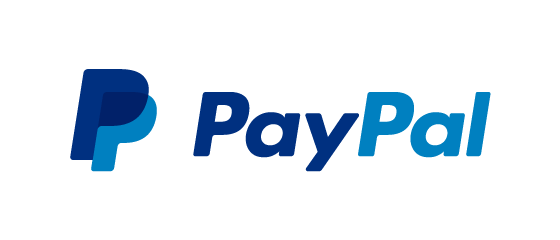PayPal Is Setting a New Standard for Employee Financial Health
PayPal made employee financial health a priority by:
- Defining a new metric, Net Disposable Income, to estimate the discretionary income remaining for employees after taxes and typical living expenses are paid.
- Reducing healthcare costs, granting stock awards to all employees regardless of level or tenure, raising wages where appropriate, and providing access to personal financial education.
- Tracking employee financial health on an ongoing basis.
A few years ago, PayPal’s President and CEO Dan Schulman wanted to re-examine how well the company’s mission – to offer affordable financial services around the world – was faring closer to home among its employees.
What the company’s leaders found was the opposite of what they expected: Many hourly and entry-level employees were struggling to make ends meet. In fact, a 2018 assessment revealed that almost two-thirds of surveyed employees said they were periodically running out of money between paydays, even though the company was paying at or above prevailing market wages.
When they reviewed the applications for the company’s emergency relief fund, they discovered another troubling fact. Many of the requests were for everyday expenses, like medical bills, student loan payments, or car repairs.
Not only did these findings cause PayPal to rethink its own approach to compensation and benefits, the company is now setting a new standard for other companies.
“The number one responsibility that we have is the health – financial health – of our employees. Nothing is more important to a company than having financially secure, passionate employees working for you,” Schulman said in a 2020 TedX interview.
A New Metric
Under Schulman’s leadership, the company took action. PayPal launched its employee financial wellness initiative at the end of 2019. At the center of this initiative was a new metric called Net Disposable Income (NDI), which goes beyond a simple wage calculation to estimate the discretionary income remaining for employees after taxes and typical living expenses are paid.
PayPal found that the estimated NDI was as low as 4-6% for some of the company’s U.S.-based hourly and entry-level employees; the company set a goal of at least 20% for all employees globally.
“At 20%, you actually have the ability to save and to put money away, and have money left over for discretionary expenses,” Schulman said. Using a percentage metric also means the NDI adjusts to the cost of living in different geographic locations.
Raising Wages, Reducing Expenses
PayPal knew that improving NDI would require a comprehensive and holistic approach. As a result, the company made changes designed to raise employees’ income and reduce their expenses in four main ways.
- First, the company reduced healthcare costs, decreasing the amount hourly and entry-level employees had to pay by nearly 60%.
- Second, it provided all employees with equity in the company, making every full-time employee a PayPal stockholder regardless of level or tenure and ensuring that the entire workforce could benefit from the company’s success.
- Third, it examined and raised wages where appropriate.
- Last, it made financial education and planning available to all employees. The company also continued to promote the existing emergency relief fund program to help employees who faced sudden spikes in expenses.
More recently, PayPal has continued to prioritize the financial wellness of its employees by awarding additional equity grants and providing wellness stipends to offset the costs of working from home. The company also began offering one-on-one financial coaching, enhancements to retirement plans, and early wage access through partnerships with Even and Hastee.
Applying a Toolkit Insight: Measure Impact
PayPal is committed to measuring the impact of its efforts on an ongoing basis. The company’s impact tracking combines quantitative measures, like the PayPal-defined estimated Net Disposable Income and benefits utilization, with qualitative storytelling. By leveraging multiple data sources, PayPal can assess whether its programs are working to improve its employees’ financial health and where it may need to make additional adjustments.
Visit the Measure Impact section of the Toolkit for more guidance on how to assess the impact of your employee financial health initiatives.
Tracking Impact
To continue to track results and progress over time, PayPal plans to conduct an annual financial health survey for all its employees and benchmark against the Financial Health Network’s national Financial Health Pulse data. The company is also capturing the real-life stories of 20 employees through a “financial diaries” project.
PayPal’s results are early but impressive. By the end of 2020, these initiatives helped raise estimated NDI to at least 18% for U.S.-based hourly and entry-level employees, making significant progress toward the company’s goal of at least 20% for all employees globally. At the same time, the company is experiencing double-digit growth year over year. While there are many reasons for PayPal’s success – including the rapid rise of digital payments – the company’s leaders believe that the results also show that treating employees better has contributed to becoming a stronger business.
Drawing on its success in improving worker well-being, PayPal – in partnership with JUST Capital and with additional support from Financial Health Network and the Good Jobs Institute – is now spearheading a broader corporate movement. The Worker Financial Wellness Initiative calls on CEOs to make employee financial well-being a C-suite priority.
“You take care of your employees and other things naturally flow from that,” Schulman said in an interview with Inc. “They love being a part of that company. They take care of customers better. And all of those things inevitably accrue to the benefit of a company in terms of how it’s trying to serve its ultimate end market.”
Employer FinHealth Toolkit
Build better employee financial health strategies with this comprehensive guide for HR professionals.
